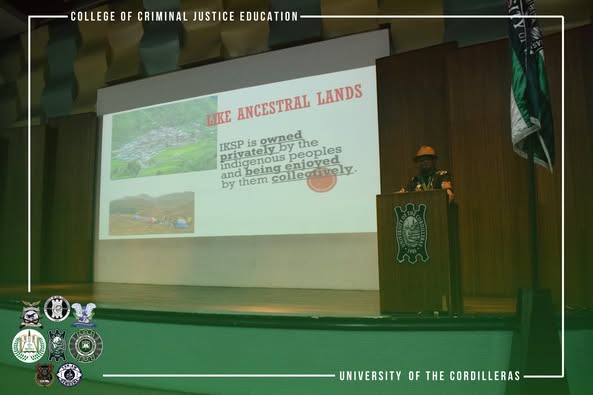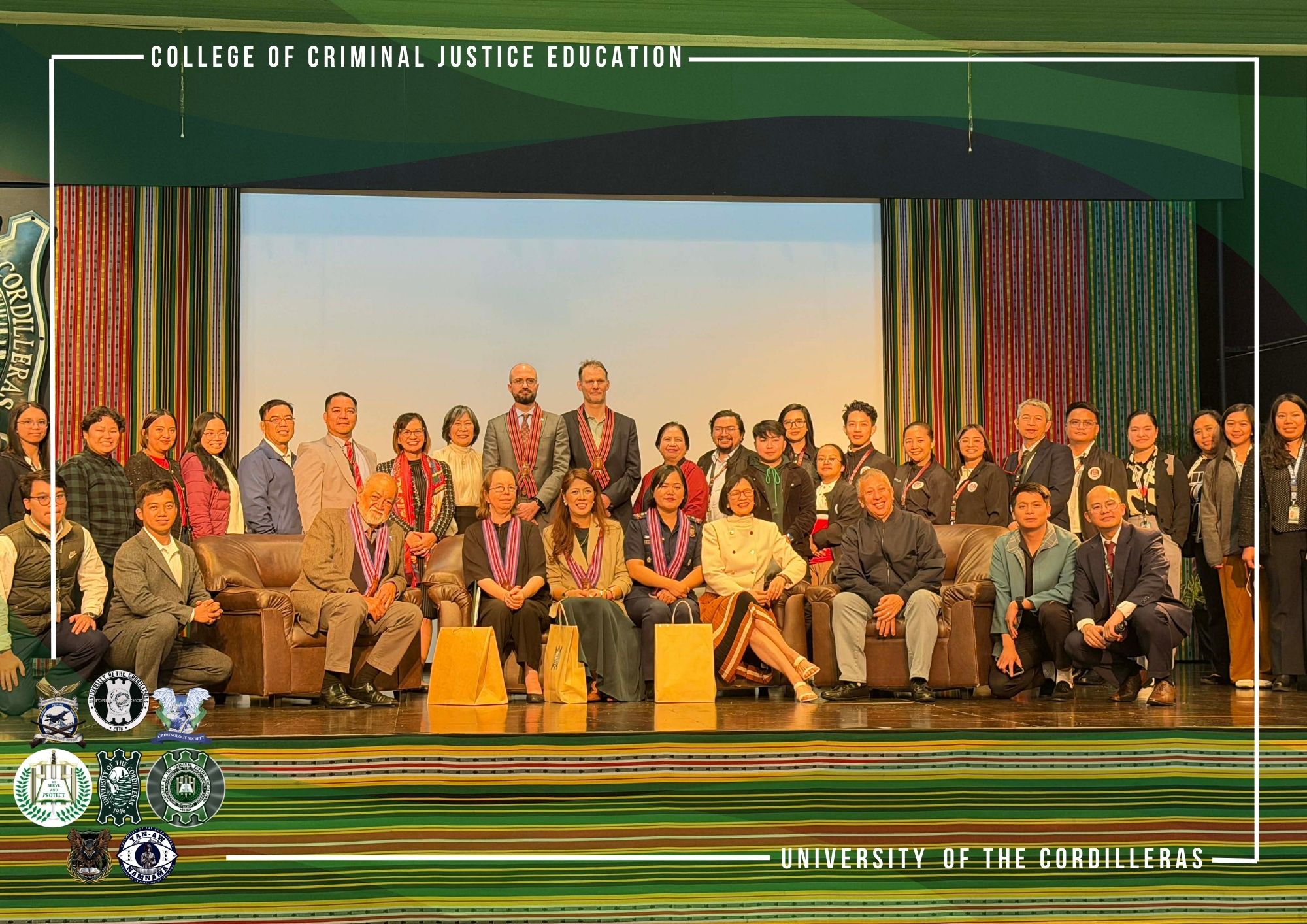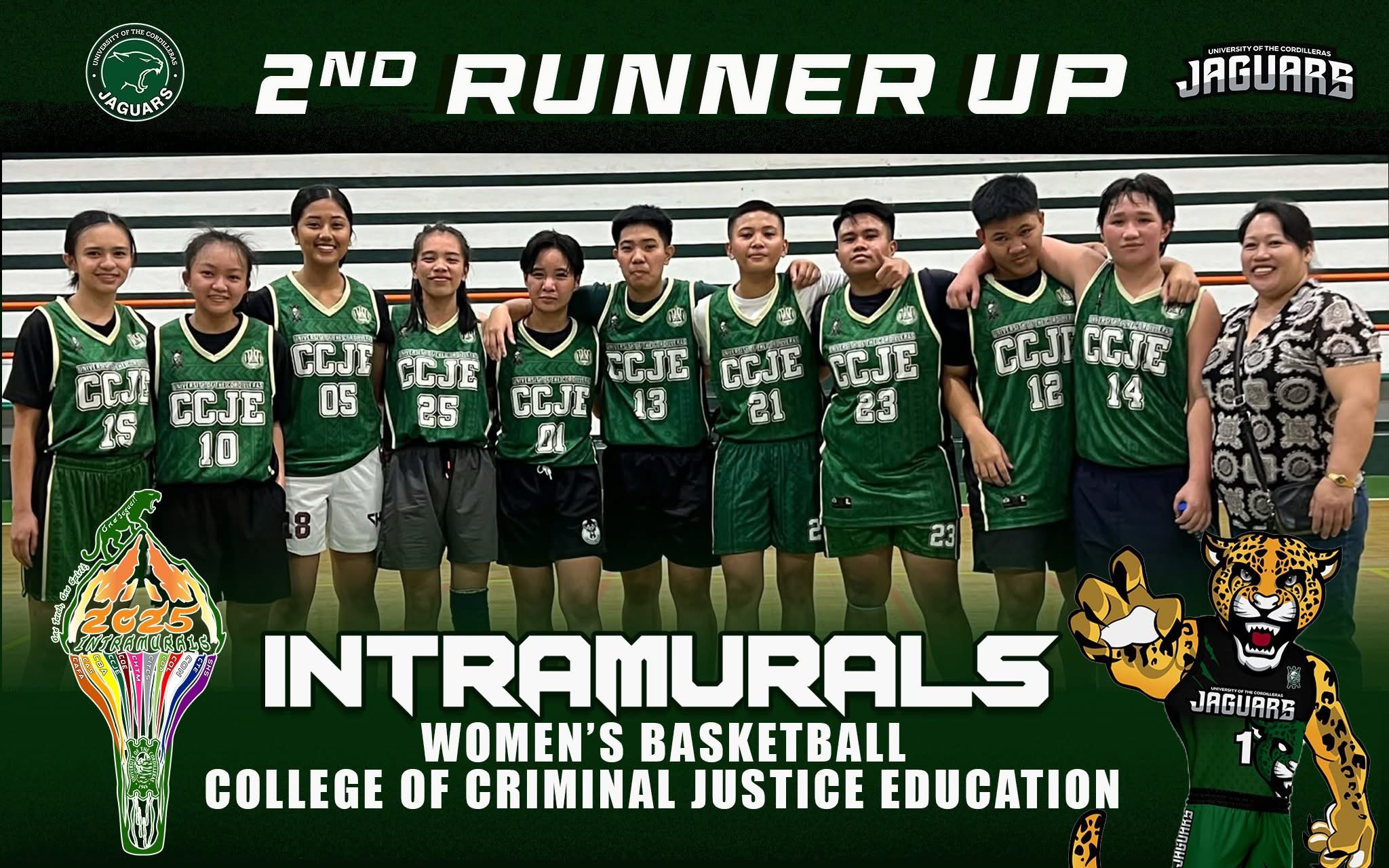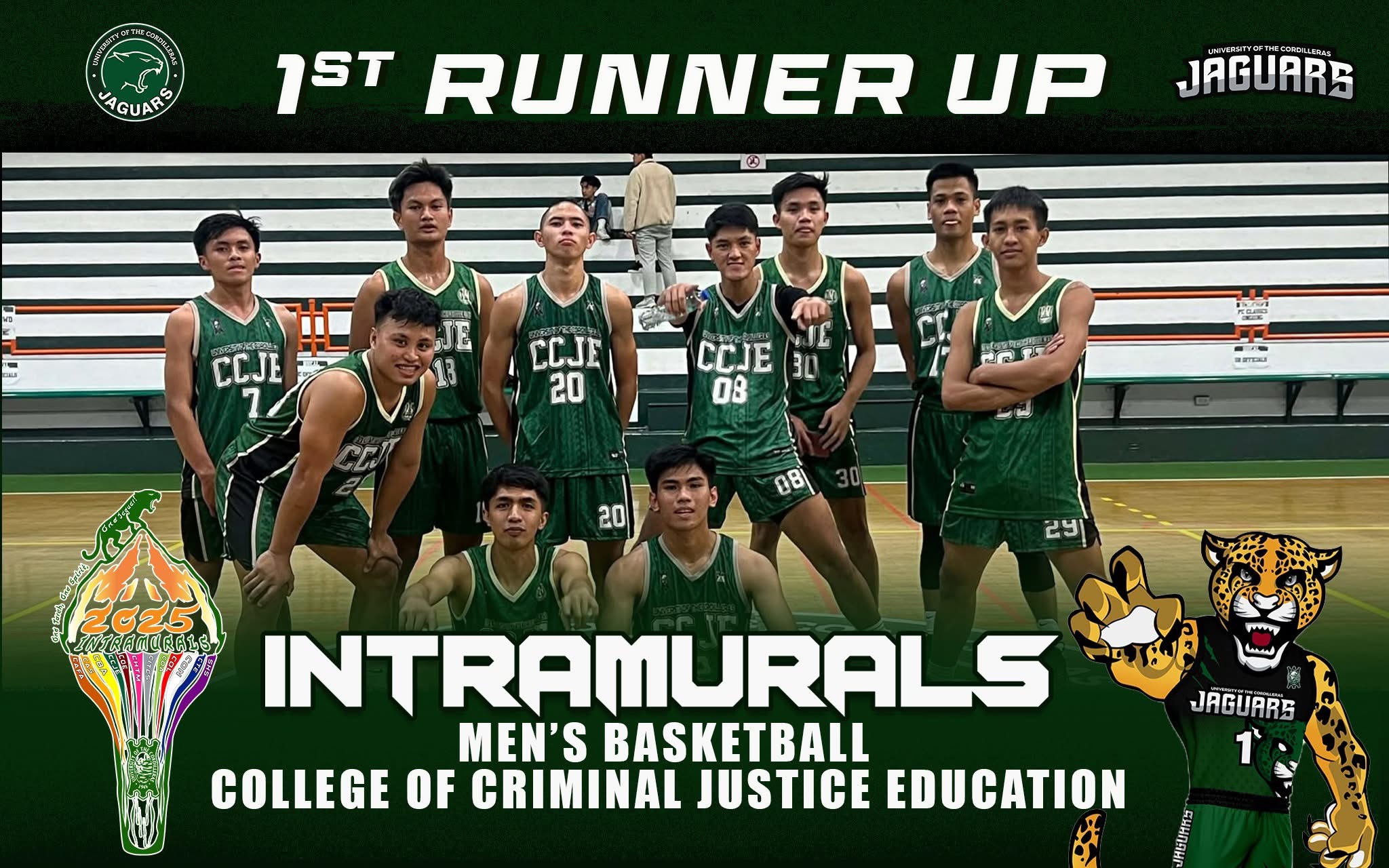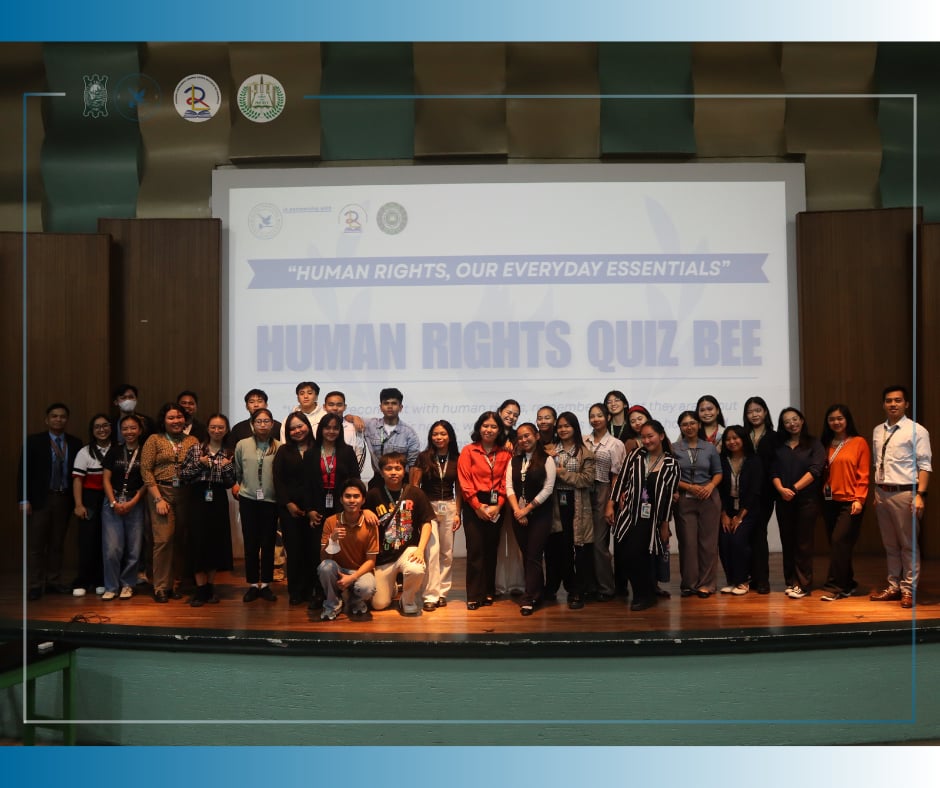By: Leah M. Donato
The College of Criminal Justice Education continues to strengthen its commitment to producing ethical and quality research through successfully organizing a seminar titled, “Respecting Rights, Empowering Voices: Indigenous Peoples Research and the FPIC process”. This event was held last May 23, 2025, at the University of the Cordilleras Auditorium. Attendees to this seminar are the UC Criminology and Political Science Students currently enrolled in their research course. Also, faculty and staff present during the seminar are Dr. Leah M. Donato, Dr. Djoana May A. Tabao-ican, Dr. Debbie Karyle F. Arquero from CCJE, and Ms. Kyshelle Jude Rafael from the College of Arts and Sciences.
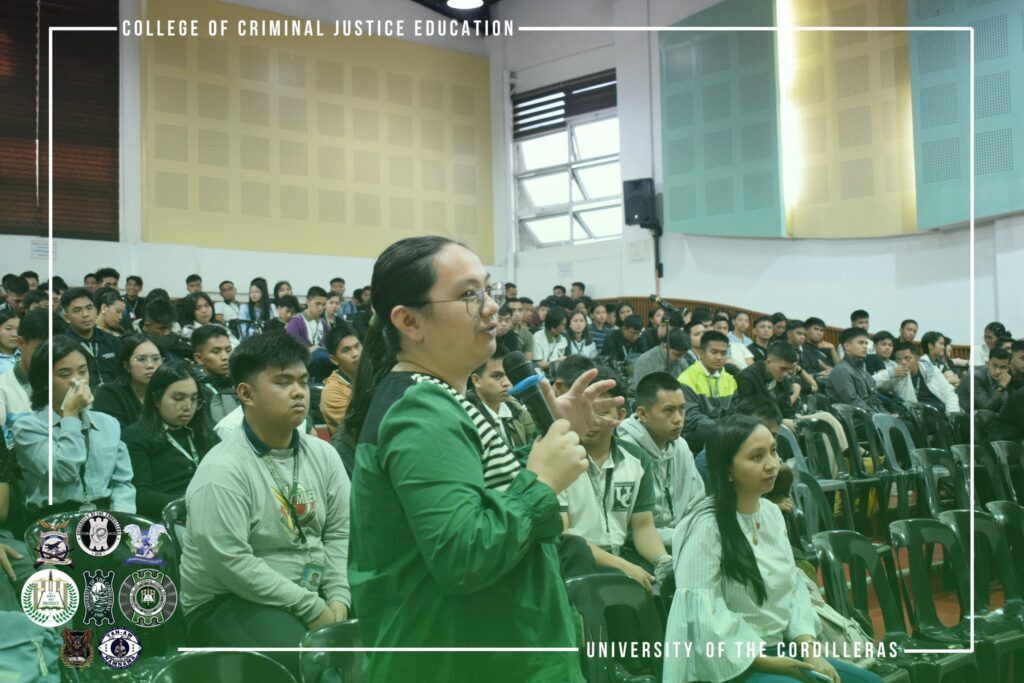
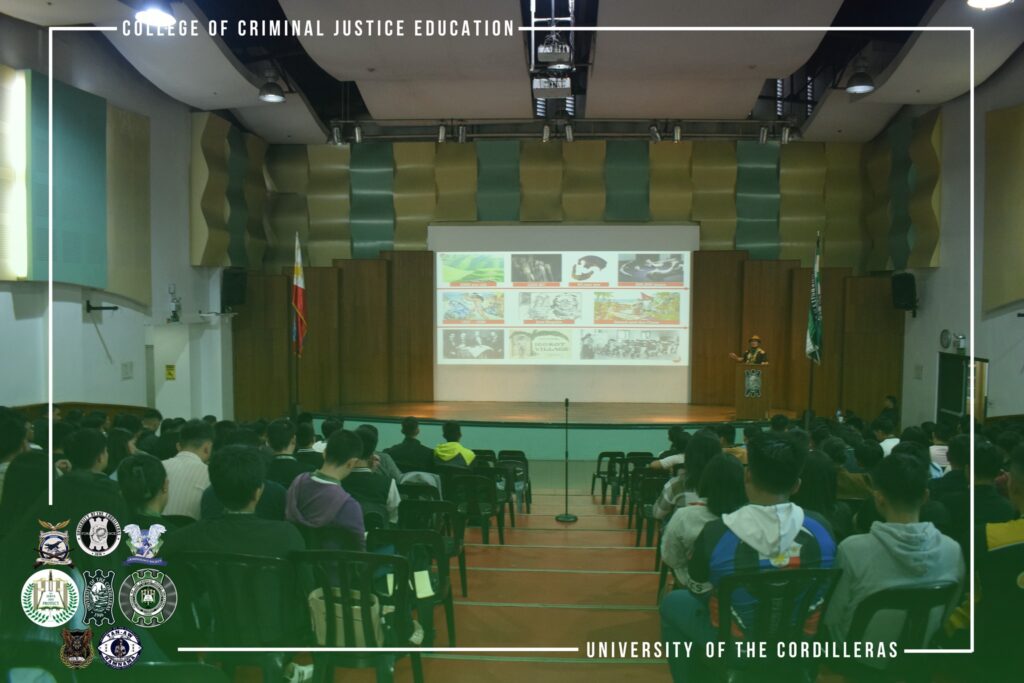
Framing the Vision: How the Seminar Was Conceptualized
The UC-CCJE recognizes that its research agenda must extend beyond the legal frameworks to include realities about IP’s justice systems. Guided by its focus on the Criminal Justice System and Human Rights, the college saw the need to deepen awareness and ethical responsibility when conducting research with Indigenous communities.
Over the years, CCJE students have explored research topics such as Indigenous methods of dispute settlement and practices within their communities. Thus, this seminar was conceptualized to equip students and faculty members with the tools to engage with Indigenous communities in ways that are respectful, participatory, and legally grounded, such as the Free, Prior, and Informed Consent (FPIC) that researchers need to comply with.
Meet the Advocate: Getting to Know Sir Rocky
Mr. Rocky Jake C. Ngalob is a committed advocate for IP rights from the Cordillera region. Emerged as a student leader, he championed both advocating for students and IP rights. He was a field journalist for Northern Dispatch Weekly (Nordis), where he immersed himself in IP communities and wrote extensively about their struggles and victories. His expertise and dedication in Indigenous advocacy led to his appointment as an officer of the National Commission on Indigenous Peoples – Cordillera Administrative Region (NCIP-CAR), making him a vital voice in promoting ethical engagement and inclusive development for Indigenous communities.
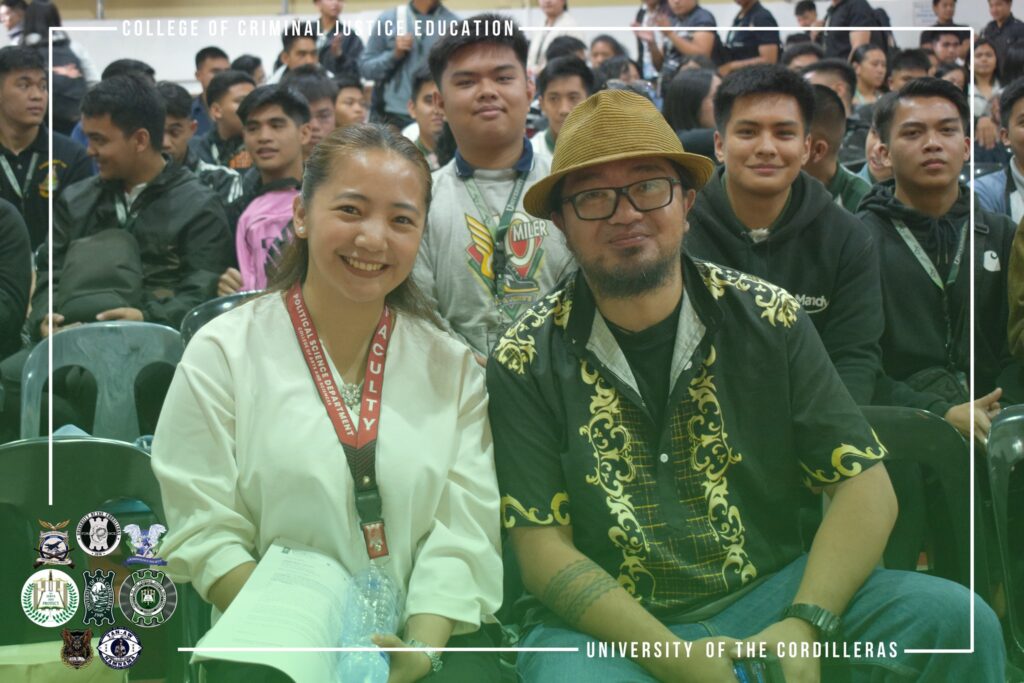
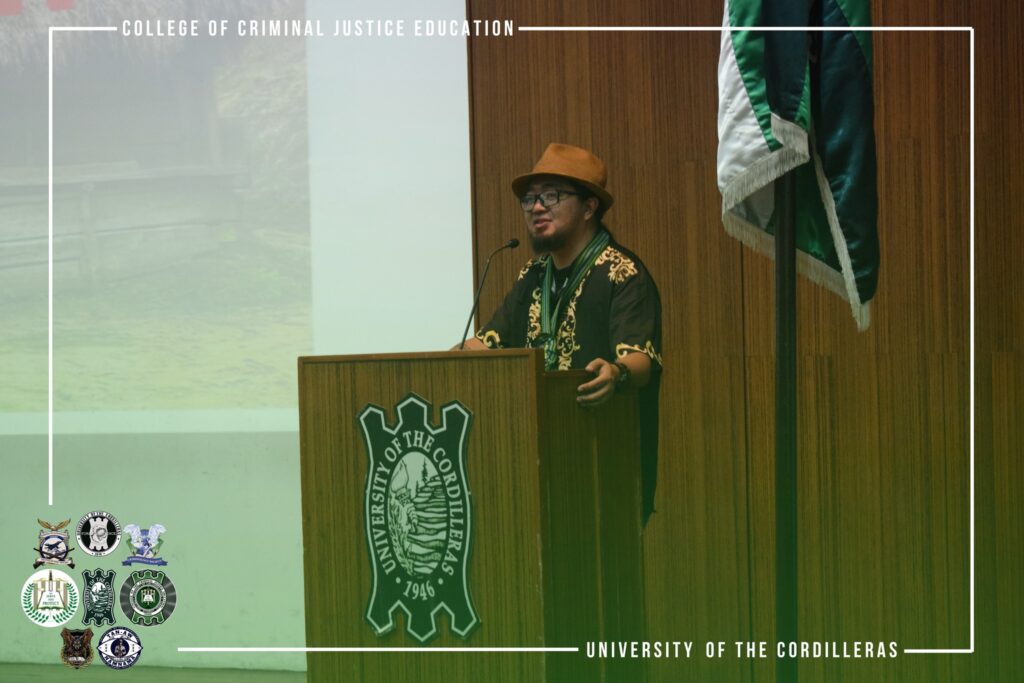
Bridging Indigenous Advocacy and Global Commitments
This advocacy-driven approach underscores the seminar’s alignment with the United Nations Sustainable Development Goals (SDGs), particularly SDG 10 (Reduced Inequalities) and SDG 16 (Peace, Justice, and Strong Institutions). By promoting ethical research practices that respect the rights of Indigenous Peoples, the activity directly contributes to reducing social and institutional inequalities often faced by Indigenous communities. Furthermore, the emphasis on the Free, Prior, and Informed Consent (FPIC) process reinforces the principles of inclusive decision-making, access to justice, and the protection of fundamental freedoms—key components of SDG 16. Through such initiatives, the UC College of Criminal Justice Education fosters academic responsibility and social equity, empowering future researchers to be catalysts of just and inclusive development.
Insights and Reflections
The lecture delivered by Sir Rocky provided key takeaways that enriched the participants’ understanding of Indigenous-centered research. These include:
(1) a clear identification of who Indigenous Peoples are in the Philippine context;
(2) suggested research topics relevant to Criminology and Political Science students, particularly those focusing on Indigenous justice systems and self-governance;
(3) a detailed discussion on the Free, Prior, and Informed Consent (FPIC) process, including legal remedies for violations; and
(4) a compelling call to action underscoring the importance of empowering Indigenous Peoples to conduct research about their own communities.
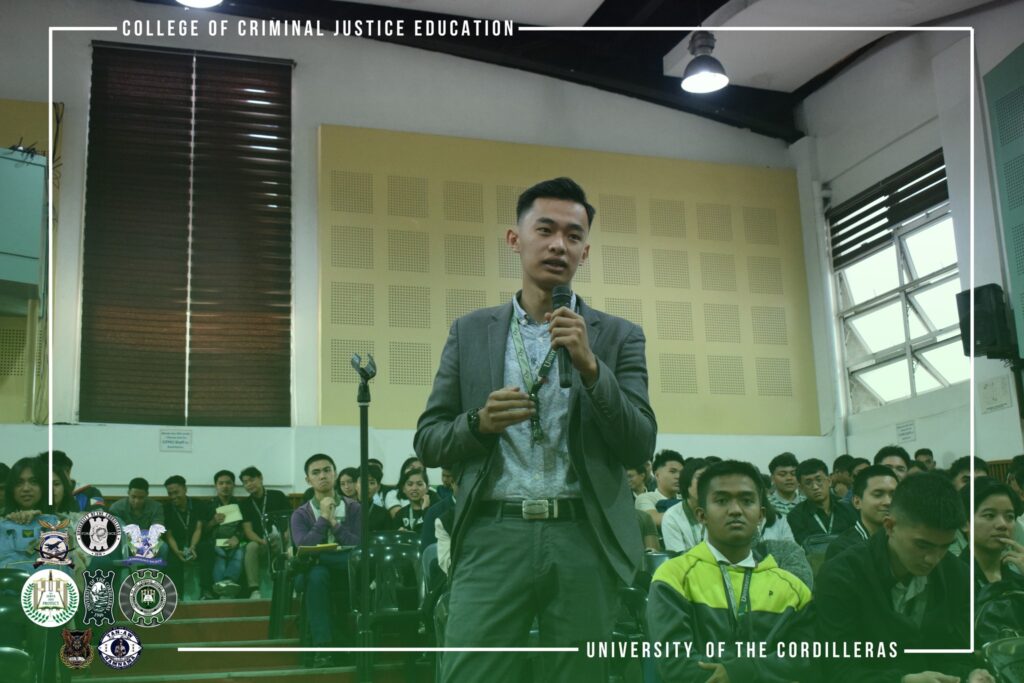
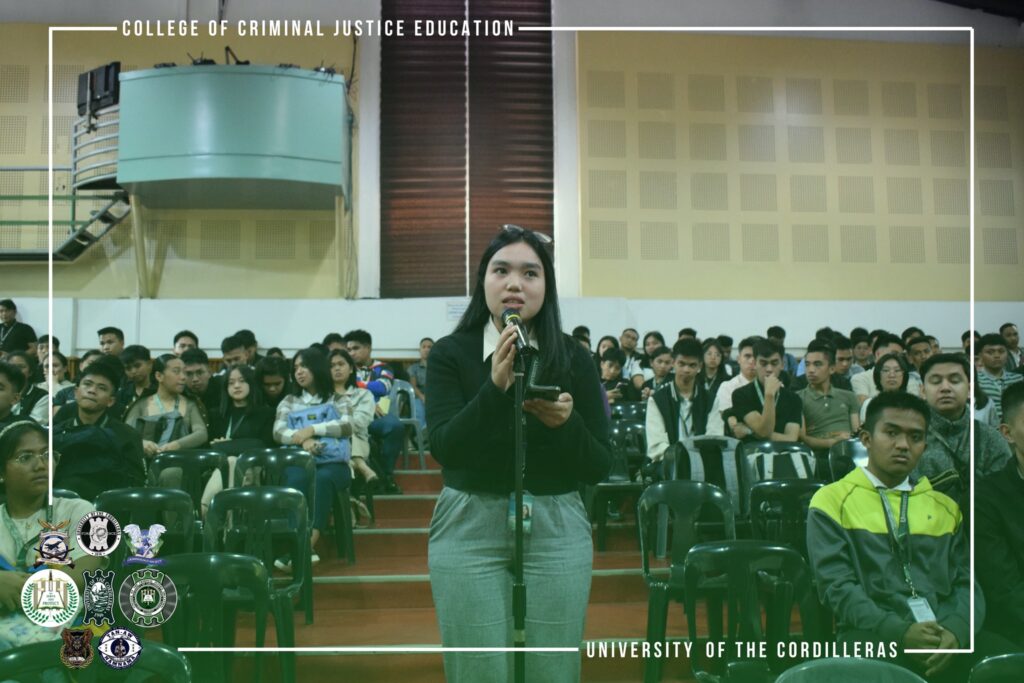
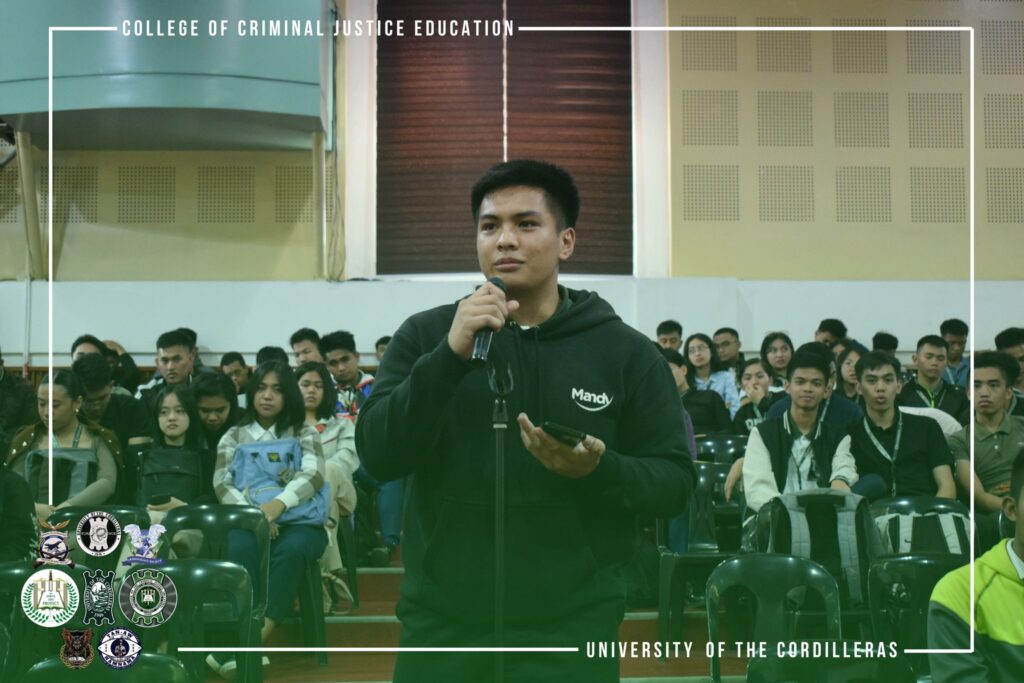
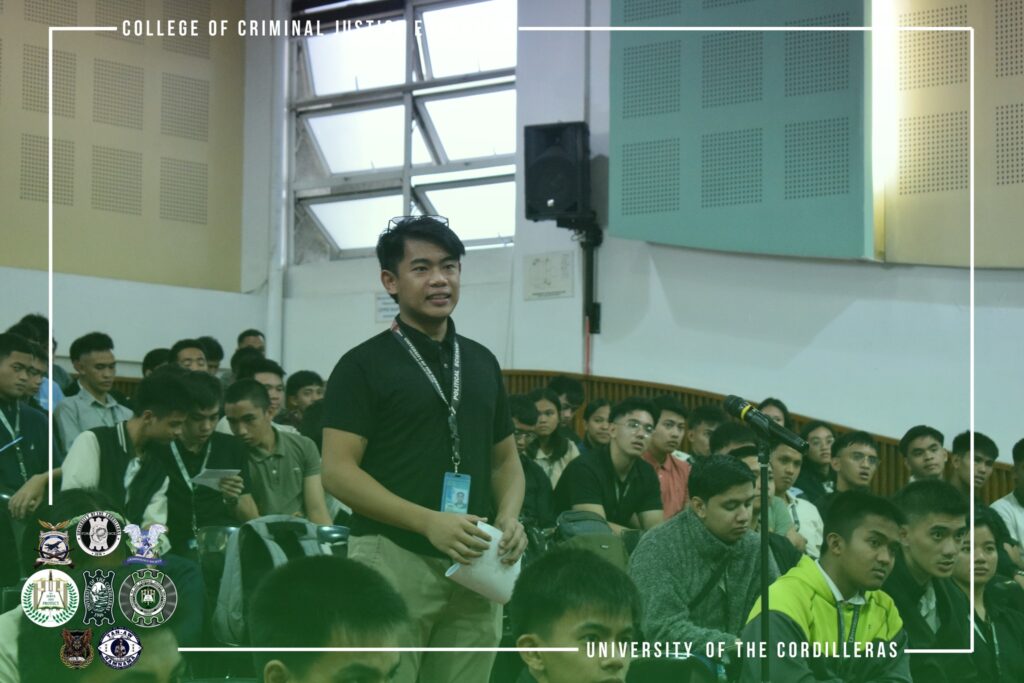
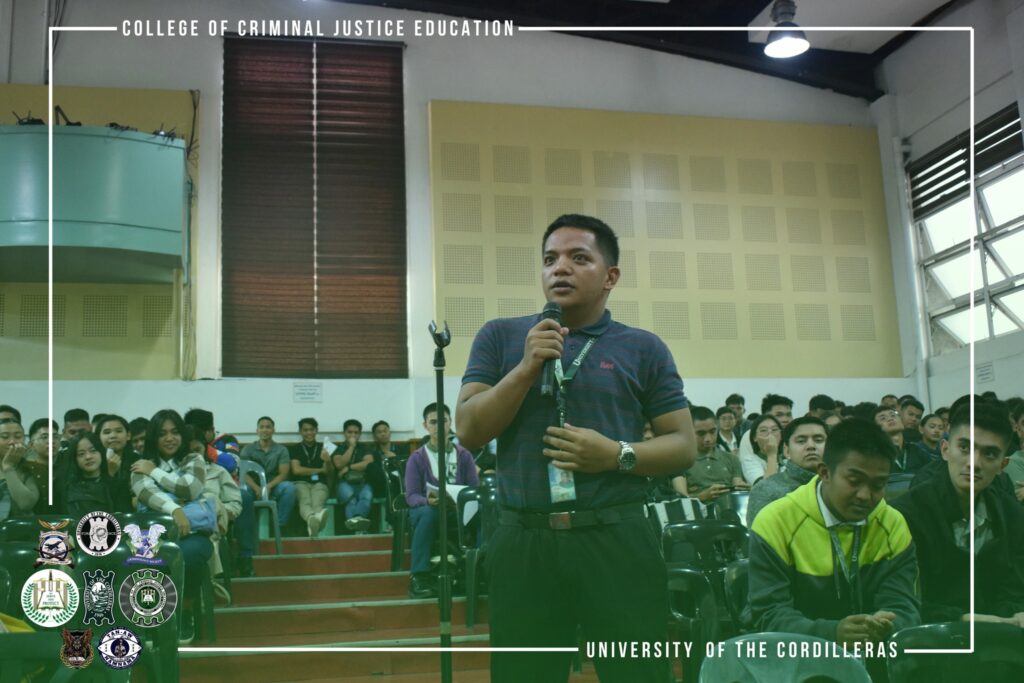
The seminar concluded with a renewed appreciation for ethical research practices that not only preserve Indigenous identities but also support their ongoing struggle for recognition, representation, and self-determination.
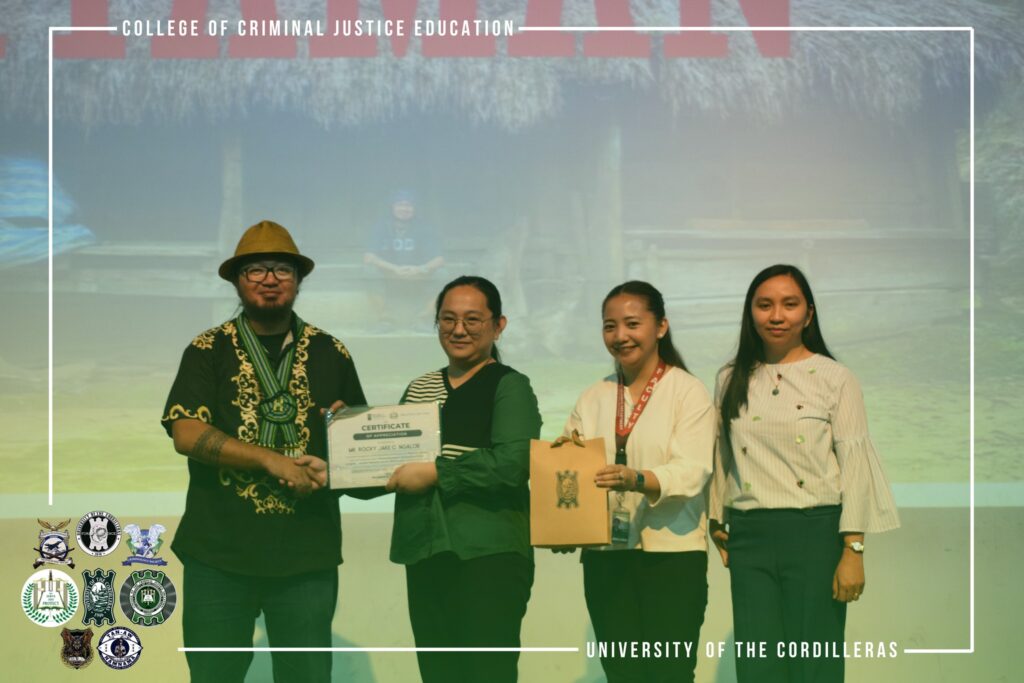
Photo by: Ms. Kyla Mae Rafanan


